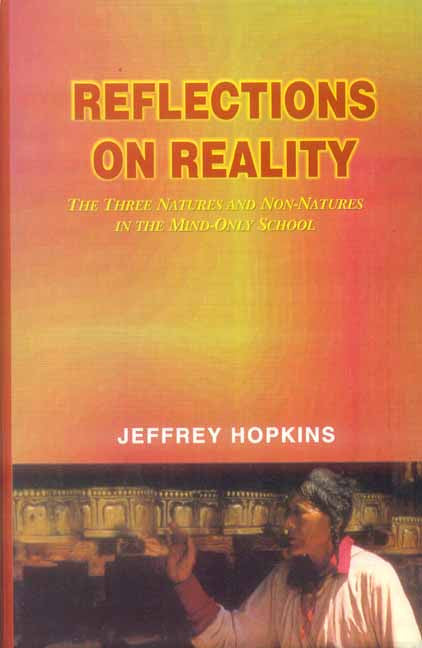Reflections on Reality
Reflections on Reality - Paperback is backordered and will ship as soon as it is back in stock.
Couldn't load pickup availability
This is the second volume in Jeffrey Hopkins' valuable series on the Mind-Only School of Buddhism and a focal description of it in Dzong-Ka-ba's The Essence of Eloquence. Dzong-Ka-ba (1357-1419) is generally regarded as one of the greatest Tibetan philosophers, and his "Mind-Only" discourse on emptiness is considered a landmark in Buddhist philosophy. In Volume I, Emptiness in the Mind-Only School of Buddhism, Hopkins provided a translation of the introduction and the section on the Mind-Only School in The Essence of Eloquence. The present volume places this enigmatic and influential exposition in its historical and philosophical contexts. Reflections on Reality conveys the intellectual vibrancy of the different cultural interpretations of this text and expands the key philosophical issues it addresses. Hopkins, one of the leading scholarly voices in Tibetan studies, begins this volume with two introductory chapters contextualizing Tibetan scholarship in general. He then goes on to discuss in detail the religious significance of the central topic of the three natures in the Mind-Only School. He also considers various views on the status of reality, including the doctrine of "other-emptiness" promulgated by the fourteenth century Jo-nang savant Shay-rap-gyel-tsen. Presenting accurate and insightful translations of a large amount of material that has never been available in English before, he shows how these topics have been debated among scholars in Tibet over six centuries. Comparing these with presentations in Europe, Japan, and the United States today, he created a lively conversation between normally disparate voices.
Review(s)
About the Author(s)
Jeffrey Hopkins is Professor of Tibetan and Buddhist Studies at the University of Virginia. His more than twenty-five books include Emptiness in the Mind-Only School of Buddhism (California, 1999), Cultivating Compassion (2001), and, as, translator-editor, His Holiness the Dalai Lama's How to Practice (2002) and The Meaning of Life (2000).
-
Pages
-
Edition
-
Size
-
Condition
-
Language
-
Weight (kg)
-
Publication Year
-
Country of Origin
-
Territorial Rights
-
Reading Age
-
HSN Code
-
Publisher




